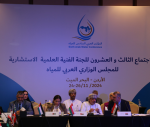You are here
Look back, walk forward
Feb 26,2017 - Last updated at Feb 26,2017
Throughout human history, whenever a community would face a challenge beyond its ability to cope, two trends would develop: one seeking to revise the community’s systems and upgrade them in order to cope with the challenge; the other seeking a puritanical return to greater compliance with tradition in order to restore the sense of security that prevailed before the challenge arose.
This happened, for instance, in 19th century Japan, which, faced with powerful Western navies, quickly incorporated modern military technology and systems despite the opposition which sought greater emphasis of neo-Confucian and Shinto principles.
In Egypt, conversely, the Mamluks, who, like the samurai, devoted their lives to perfecting their knightly skills of horsemanship, archery, jousting and swordsmanship, found themselves helpless against the arquebus and volley gun of the Ottoman janissaries.
This is particularly relevant to the ongoing debate in Jordan on educational reform.
One trend seeks to replace the traditional chalk and talk method where teachers impart knowledge to students with a system that teaches students important learning skills, with emphasis on analytical thinking, conceptual thinking and teamwork.
The other, clearly fearful that such an approach would create free-thinking individuals, wants to maintain control on knowledge in order to continue fostering hatred for the West and pride in the honourable forebears, who were devout Muslims and who made great breakthroughs in all branches of science.
The new syllabus, for instance, was criticised for failing to highlight that Ibn Battuta, in addition to being a traveller and geographer, memorised the Holy Koran in its entirety.
One theory even suggested that the Ottoman Empire achieved its glory because every sultan up to Suleiman the Magnificent was required to memorise 1,000 verses of Arabic poetry, and its decline started the moment this practice was abandoned, leading to the present state of the Ummah.
One way to address this question, I humbly posit, may be to examine the honourable forebears’ approach to science and religiosity.
A case in point would be Jaber Ibn Hayyan, the 8th century alchemist whose work was pivotal in the process that eventually separated chemistry from alchemy.
The product of an age when an educated person studied all branches of knowledge, he was equally versed in Islamic theology.
His mentor, Imam Ja’far Al Sadiq, was better known as a theologian, though well educated in natural sciences, mathematics, philosophy, astronomy, anatomy, chemistry/alchemy and other subjects.
The point is that Ibn Hayyan’s works on chemistry cited alchemists from Greece, Egypt and Persia. He also used scientific methods based on observation and experimentation, and he is quoted as saying: “The first essential in chemistry is … practical work and … experiments, for he who performs not practical work nor makes experiments will never attain to the least degree of mastery.”
Ibn Hayyan was able to advance science because he, for one, understood that one cannot make progress unless one frees his/her mind, opens up to the world and looks forward, not back.












